In recent decades, the use of dogs in conservation work has exploded. Deployed to detect things like invasive or elusive species, scat, poachers, illegal wildlife trade products, and much more, conservation dog teams are trained to aid teams in the field. With benefits like speedier searches over large areas, proven targeted detection accuracy, and ease of transport and surveying, conservation dogs also offer possibilities for enhancing other technological methods by confirming or providing results in real-time.
Conservation dog teams now provide scat, reptile, aquatic species, whale scat, and invasive plant detection, and plenty more. This expansion of use is partly due to refined training techniques that offer a broader capability in very specialized detection roles, and partly due to more people seeing the capabilities and benefits of trained dogs.
Specifically, the utilization of dogs in conservation has experienced a considerable increase in recent years as people realize what the capability brings to the field survey arena. The benefits of dogs offering enhanced detection to support surveys includes:
- Speed of search
- Covering large areas effectively
- Proven detection capability
- Calibrated on a variety of species, if required
- Accuracy in the detection of targets and ignoring similar non-target specimens
- And easy to transport to survey sites.
Whether you train, handle, use, or are interested in finding out more about conservation dogs, this is the community for you! This group is growing, so if you'd like to get started and make connections here, here are some suggestions:
- Do you have advice to share with others who are interested in trying conservation dog work for the first time? Or do you need advice on whether conservation dogs suit your work?
- Do you have resources or research to share on training or using conservation dogs?
- Do you have a case study or project update that involves conservation dogs?
- Do you have a question about how to access conservation dogs for your own work?
Your group manager is Paul Bunker. Direct message him through WILDLABS or email him here with any questions or suggestions.
Header photo: Bill, photographed by Stephanie O'Donnell
No showcases have been added to this group yet.
- @sopara
- | She/her
- 0 Resources
- 0 Discussions
- 4 Groups
- 0 Resources
- 0 Discussions
- 7 Groups
worked in wildlife conservation coms, now in live music production incl audio, curious about eco/bioacoustics.
- 0 Resources
- 11 Discussions
- 3 Groups
- @Meagan
- | she/her
Supporting wildlife monitoring in remote Pacific Islands
- 0 Resources
- 1 Discussions
- 3 Groups
Zoologist, currently serving as Head of Field Studies at Absolute Adventure (UAE). An environmental education professional with expertise in program development: field studies, wildlife conservation, research-based fieldwork, and outdoor education.
- 0 Resources
- 0 Discussions
- 4 Groups
Wildlife Drones
Wildlife Drones has developed the world’s most innovative radio animal-tracking system using drones so you can track your radio-tagged animals like never before.


- 18 Resources
- 8 Discussions
- 31 Groups
- 0 Resources
- 8 Discussions
- 4 Groups
Woodland Park Zoo

- 0 Resources
- 5 Discussions
- 8 Groups
Tech-Driven Conservation with a Wild Twist

- 0 Resources
- 1 Discussions
- 8 Groups
- @paulamackay
- | she/her
Woodland Park Zoo
Paula MacKay is a carnivore conservation specialist at Woodland Park Zoo in Seattle. She specializes in noninvasive survey methods for carnivores.
- 0 Resources
- 0 Discussions
- 2 Groups
- @Phillip_Swart
- | He
I'm a conservationist working in the Vulture conservation space in South Africa with a huge passion for technology.
- 0 Resources
- 0 Discussions
- 17 Groups
Chiron K9
Canine Trainer/Consultant



- 11 Resources
- 51 Discussions
- 2 Groups
Scientists at Victoria's Healesville Sanctuary are using trained sniffer dogs on paddleboards to track and identify platypuses in their habitat.
23 July 2025
Murray-Darling carpet python populations in South Australia have declined due to loss of habitat and predation. Trials using conservation detection dogs to find the snakes in the Riverland have so far had positive...
26 May 2025
A published research study
15 January 2025
Their keen noses are helping researchers document the diversity of fungi living underneath Pacific Northwest forests.
15 January 2025
Published research paper
27 August 2024
WildLabs will soon launch a 'Funding and Finance' group. What would be your wish list for such a group? Would you be interested in co-managing or otherwise helping out?
5 June 2024
YouTube link to interview regarding the Saola Detection Canine project in Laos
10 December 2023
This article discusses a project utilizing canines to detect the scat of a critically endangered mammal, the Saola.
10 December 2023
A secure platform designed for those working to monitor & protect natural resources. Insight facilitates sharing experience, knowledge & tools to increase efficiency & effectiveness in conservation. By...
7 November 2023
Detection dogs may provide a non-invasive way to determine female receptivity, but this has not been explored in captive wildlife. This exploratory study investigated the use of detection dogs as a novel method of...
25 October 2023
By sniffing out egg masses, dogs are helping researchers against an invasive species
26 April 2023
Published paper attached
14 November 2022
September 2024
event
December 2023
event
| Description | Activity | Replies | Groups | Updated |
|---|---|---|---|---|
| Hey all!!I've been participating in a small mammal trapping study and we are having bad luck trapping. We do have a dog with us (not a... |
|
Conservation Dogs | 1 week 2 days ago | |
| Thank you! I will follow up by email. |
+8
|
Animal Movement, Conservation Dogs, East Africa Community, Geospatial, Sensors, Women in Conservation Tech Programme (WiCT) | 5 months ago | |
| Yes, Belgian Malinois dogs are very common nowadays to accompany park rangers in South Africa. 🐕🦺The park I worked with had three of them, but training them is quite expensive,... |
|
Conservation Dogs | 6 months ago | |
| The PCB mount terminals are actually quite robust and paired with a lock washer and something that would better secure the nylon (e.g., a piece of flat grooved plastic to add... |
|
Acoustics, Conservation Dogs, Sensors | 9 months ago | |
| Hi Steph, We appreciate the support! Thanks for the tag and your help managing the community!Patrick |
|
Sensors, Acoustics, Conservation Dogs, Emerging Tech, Open Source Solutions | 1 year 3 months ago | |
| These are great materials to refer to. I just have to wrap my amateur brain around the technological words but I should be fine. Thank you Harold. |
|
Conservation Dogs, Women in Conservation Tech Programme (WiCT) | 2 years 5 months ago | |
| "Preliminary results- Fecal samples are increasingly used in wildlife research to confirm species’ presence and to estimate population... |
|
Conservation Dogs | 3 years 1 month ago | |
| In this short presentation, Dr. Edgar Aviles-Rosa of the Canine Olfaction Lab at Texas Tech University joins Chiron K9's Principal,... |
|
Conservation Dogs | 3 years 4 months ago | |
| The UK's first Conservation Canine conference is now available for replay ticket purchase. Day 1 9:30 -... |
|
Conservation Dogs | 3 years 5 months ago | |
| thanks Pete, yes we're going to collect some from captive animals when they come out of hibernation. I'll keep in touch. |
|
Conservation Dogs | 3 years 8 months ago | |
| Thank you! I just replied via email. |
|
Conservation Dogs | 3 years 8 months ago | |
| With their boundless enthusiasm and amazing powers of smell, canines are playing a growing role in global efforts to protect wildlife. |
|
Conservation Dogs | 3 years 8 months ago |
List of grant opportunities for conservation dogs
14 May 2018 9:48pm
27 April 2019 5:22pm
Just learned about this community and am super excited to see it exists. I wanted to comment on Conservation Canines (CK9). I served as the coordinator for CK9 for 18 years. The majority of CK9, including myself and its 17 dogs, have broken off and are trying to get a new program set up called Rogue Detection Teams! We are just getting our paws under us but we are all super excited to be unleashed from the University and embarking on a grand new adventure. Rogue Detection Teams can be reached at contact@roguedogs.org and also found on Facebook @roguedogs and IG and Twitter at @roguedetection. We have a website in the works at Roguedogs.org but it is not up just yet. Looking forward to being a part of the community. Dogspeed!
3 January 2020 7:17pm
Hi Yvan, My name is Jennifer Hartman and I work with Rogue Detection Teams, a program that works with and instructs conservation detection dog teams. Did you ever receive enough information to pursue your project? If not, one, we'd love to learn of more opportunities ourselves, as we have many conservation projects that we would like to support and are unable to. Additionally, we have recently learned about a group, Midwest Conservation Dogs who just received a grant to train a new dog. I think it was a local grant but we're sure that they would be more than hh=appy to discuss with you how they received their grant. Most of our projects that we conduct, and we have worked on storm petrel burrows in Haida Gwaii, British Columbia, come from government funding or special program fudning (some past partners include The Nature Conservancy, World WIldlife Fund, various univeristies, etc.). We're happy to discuss how we might help to get your project off the ground, or if you have already conducted it, we'd love to learn how it went and how you were able to fund it. We can be reached at contact@rogueddogs.org or our website is at roguedogs.org. Warm regards in the New Year, Jennifer
Reptile Detector Dogs
8 August 2016 11:35am
14 May 2018 9:37pm
Hi Steph and all,
I don't work with detector dogs directly but colleagues of mine in the Pedernales province of the Dominican Republic have used a dog to locate iguana nests in a dry environment. Iguana nests (which are underground) can be found by looking for a typical hole in the ground; unfortunately, a local species of spider makes a very similar hole, which make iguana nest searches difficult (since you don't want to break the nest open) and time-consuming. Biologists at Grupo Jaragua, a Dominican environmental NGO, thus trained a dog to successfuly smell for iguana nests.
Their dog sadly died after eating poison intended to kill stray dogs but did find a number of iguana nests for several years.
- Yvan
Detection dogs used for border control
5 April 2018 12:51pm
26 April 2018 4:43pm
Hi Katrin,
We are working with Panthera in Kyrgyztan on wildlife trafficking at the border. I believe you may be in touch with the program? We have helped Border patrol layer on snow leopard, argali and saiga as well as falcons. I would be happy to put you in touch with Aimee Hurt, who has worked there with the teams. Or you can reach out to Tanya Rosen with Panthera to ask about that program. We are happy to help share experience.
Best, Megan
30 April 2018 10:32am
Hi Megan
That sounds great, thank you! I will message you.
Best
Katrin
Seminar: The power of non-invasive approaches to conservation science, Wednesday 1 November, 5pm (Cambridge)
23 October 2017 10:43am
Assessment of Detection and Tracking Dog Programs in Africa
5 April 2016 7:43pm
15 April 2016 5:45pm
Hi Rachel, the link seems to be broken, fyi.
Marie
18 April 2016 9:41am
Hi Marie,
Thanks for alerting us to a possible broken link. I've just double checked both links Rachel shared and they both appear to be working. Just in case, the links are:
Working Dogs for Conservation: http://wd4c.org/
Assessment of Detection and Tracking Dog Programs in Africa (PDF): http://files7.design-editor.com/90/9024931/UploadedFiles/520bd328-b718-423f-b041-da20b254e24a.pdf
24 April 2016 3:22am
Thanks!



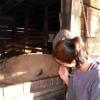
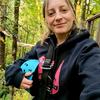
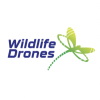


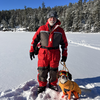








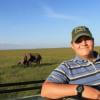


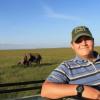











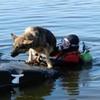





31 August 2018 9:57pm
Two more resources that may be worth checking (USA):
- Working Dogs for Conservation https://wd4c.org/
- Conservation Canines - Center for Conservation Biology, University of Washington https://conservationcanines.org/
(Thanks to Kate Wing for the tips).